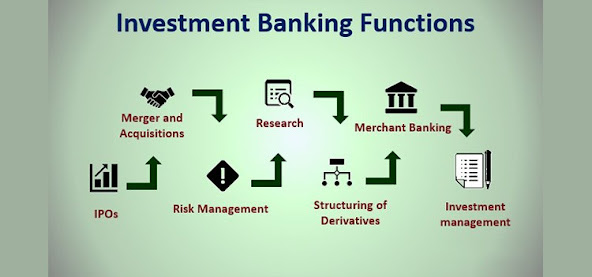Investment banking has been an integral part of the financial industry for centuries, helping businesses and governments raise capital and achieve their financial goals. However, with the advent of technology and changing customer preferences, the investment banking industry is undergoing a transformation. In this article, we will discuss the steps that investment banks can take to build a successful future.
Introduction
The investment banking industry has been facing challenges due to the changing economic environment, regulations, and customer preferences. With the increasing competition from FinTech companies, investment banks need to embrace new technologies and innovation to stay relevant. In this article, we will explore the future of investment banking and how banks can adapt to the changing landscape.
Understanding the Industry Trends
To build the future of investment banking, it is essential to understand the industry trends. Some of the key trends that are shaping the industry include:
Digital Transformation
Digital transformation is changing the way investment banks operate. It is essential to embrace new technologies to improve operational efficiency and customer experience. Investment banks need to adopt new technologies such as AI, machine learning, and blockchain to stay ahead of the competition.
Regulatory Compliance
The regulatory environment is becoming more complex, and investment banks need to ensure compliance with the changing regulations. They need to implement robust compliance frameworks to avoid regulatory penalties and reputational risks.
Customer Experience
Customers are looking for a more personalized and seamless experience. Investment banks need to adopt new technologies to enhance the customer experience and provide personalized solutions.
Competition from FinTech Companies
FinTech companies are challenging the traditional investment banking model by offering innovative solutions and better customer experience. Investment banks need to collaborate with FinTech companies to leverage their capabilities and remain competitive.
Building the Future of Investment Banking
To build the future of investment banking, investment banks need to adopt the following strategies:
Embrace Digital Transformation
Investment banks need to embrace digital transformation to improve operational efficiency and enhance customer experience. They should invest in new technologies such as AI, machine learning, and blockchain to automate processes, reduce costs, and enhance decision-making capabilities.
Build Strong Compliance Frameworks
Investment banks need to build strong compliance frameworks to ensure compliance with the changing regulations. They should invest in compliance technology and hire experts to ensure that they are following the regulations.
Focus on Customer Experience
Investment banks need to focus on providing a seamless and personalized customer experience. They should invest in new technologies such as chatbots and robo-advisors to provide personalized solutions and improve customer engagement.
Collaborate with FinTech Companies
Investment banks need to collaborate with FinTech companies to leverage their capabilities and stay competitive. They can partner with FinTech companies to offer innovative solutions and improve customer experience.
Invest in Talent
Investment banks need to invest in talent to stay ahead of the competition. They should hire experts in new technologies and emerging areas to ensure that they are keeping up with the industry trends.
Conclusion
The investment banking industry is undergoing a transformation due to the changing economic environment, regulations, and customer preferences. Investment banks need to embrace digital transformation, build strong compliance frameworks, focus on customer experience, collaborate with FinTech companies, and invest in talent to build a successful future.
FAQs
1. What is investment banking?
Investment banking is a financial service that helps businesses and governments raise capital by underwriting and selling securities.
2. How is investment banking different from commercial banking?
Investment banking deals with capital markets and securities, while commercial banking focuses on retail banking and lending.
3. What are some of the challenges faced by investment banks?
Investment banks face challenges such as changing economic environments, regulations, and competition from FinTech companies.
4. How can investment banks improve customer experience?
Investment banks can improve customer experience by
investment banking courses in delhi | kyc analyst training programme | kyc analyst courses | kyc analyst course | aml analyst course | kyc analyst course in delhi | investment banking courses with placement | kyc analyst course in india | finacle banking software training | banking program course | certified investment banking program | investment banking training | investment banking courses | certificate in investment banking course fees | bank training courses | private banking course | bank training courses in gurgaon | bank job course | short term banking course | banking and finance course | finacle software training course | bank management course | post graduate programme in banking and finance | banking classes near me | banking course in delhi with placement | bank coaching near me | investment banking courses in gurgaon | bank coaching in Delhi



Comments
Post a Comment